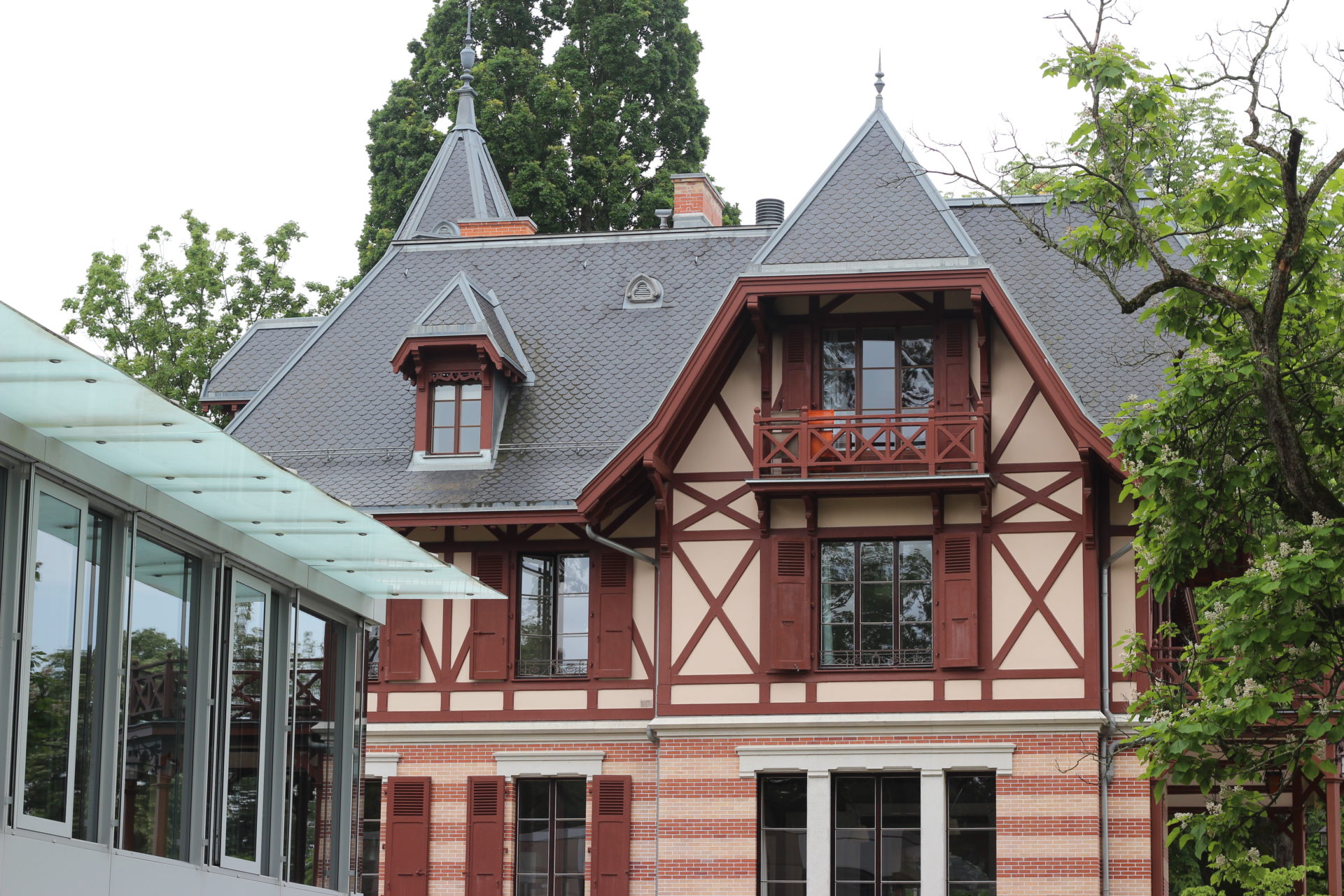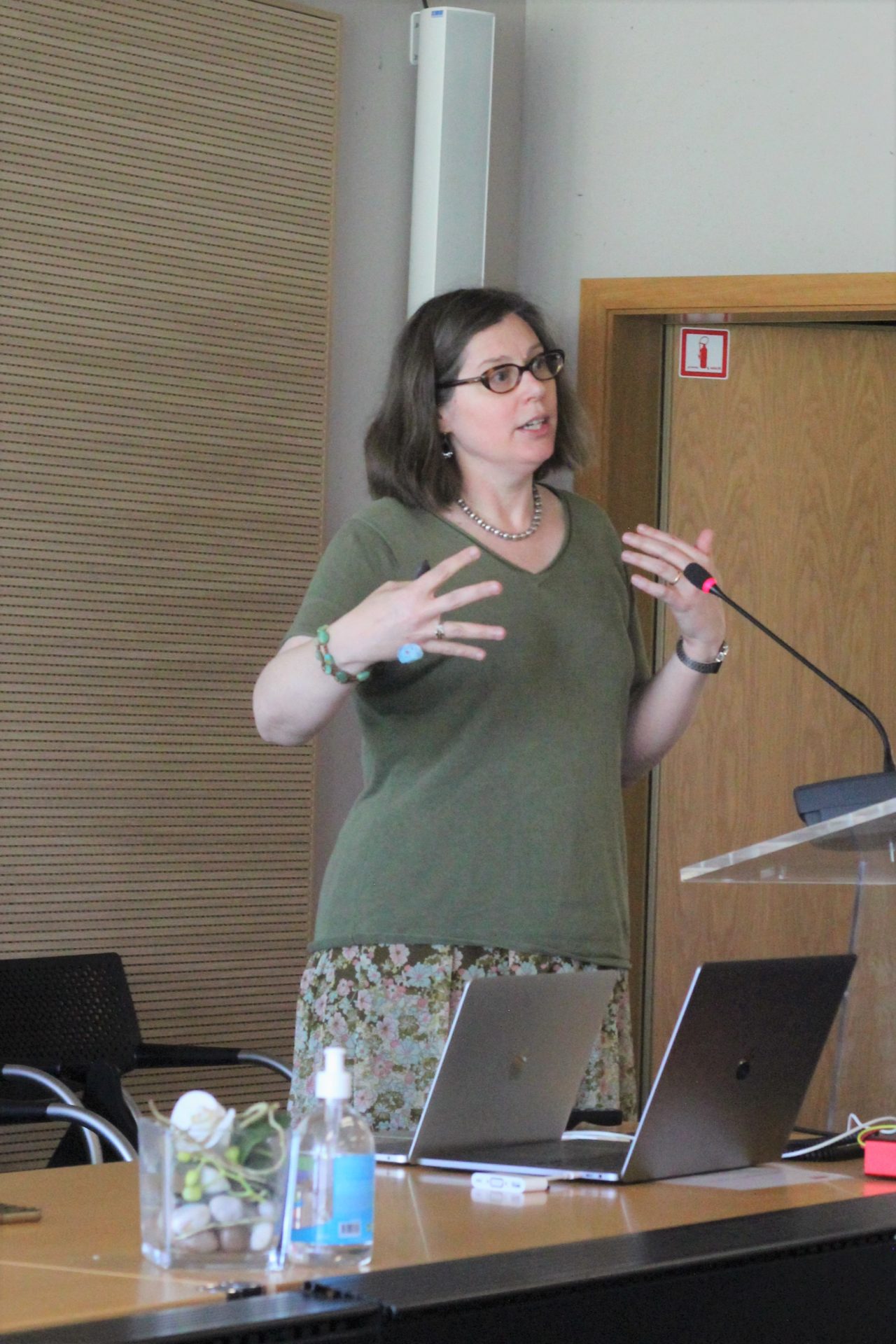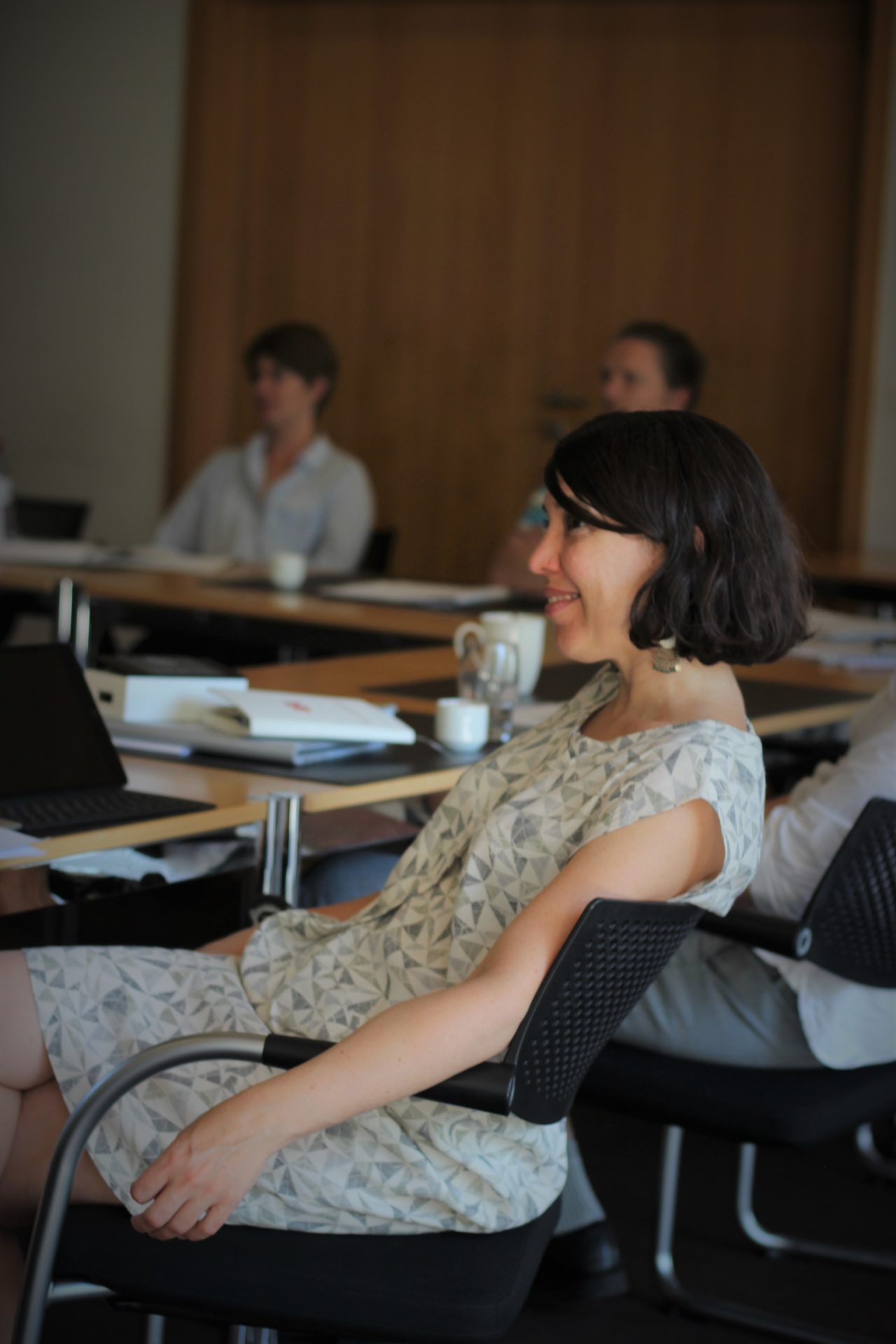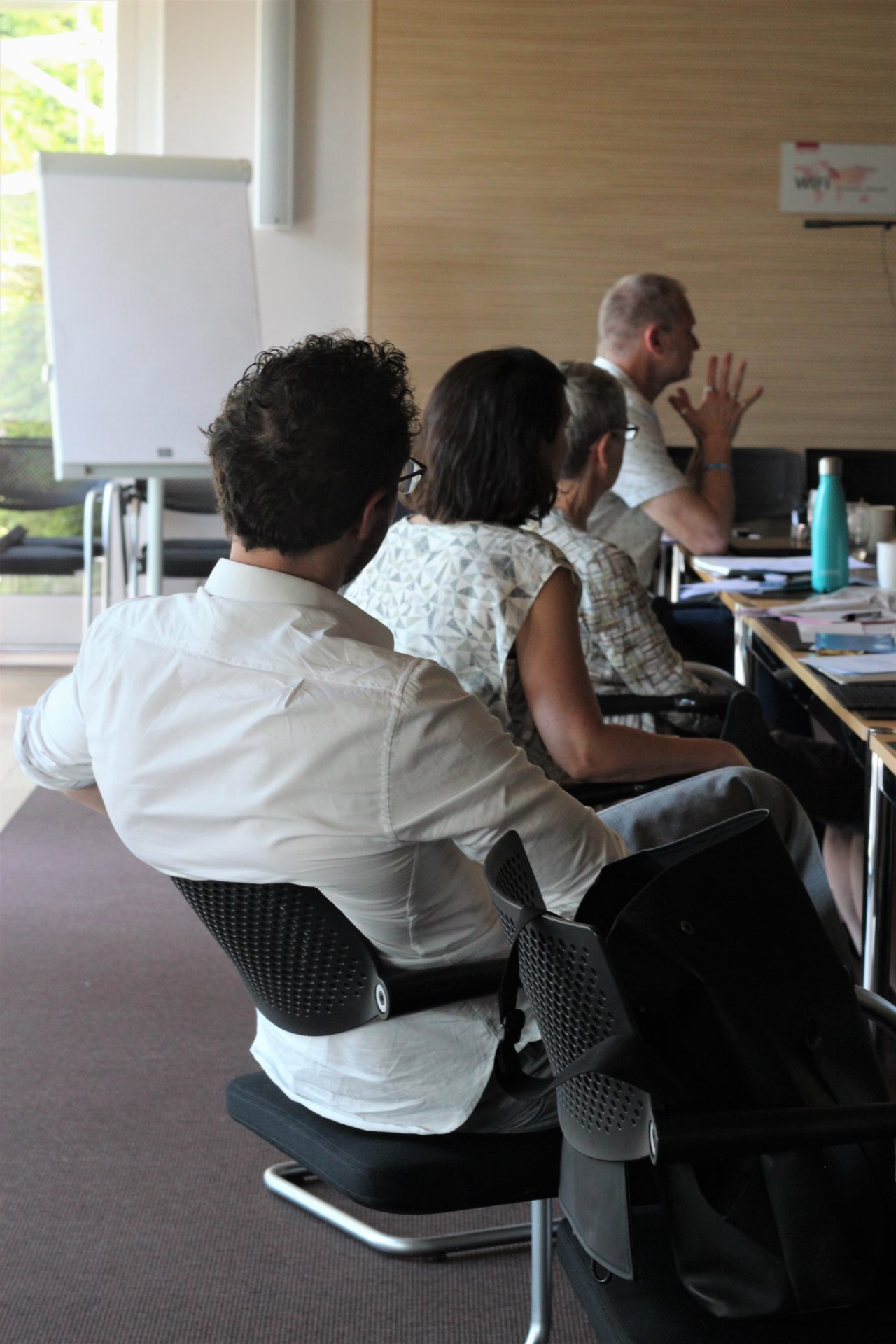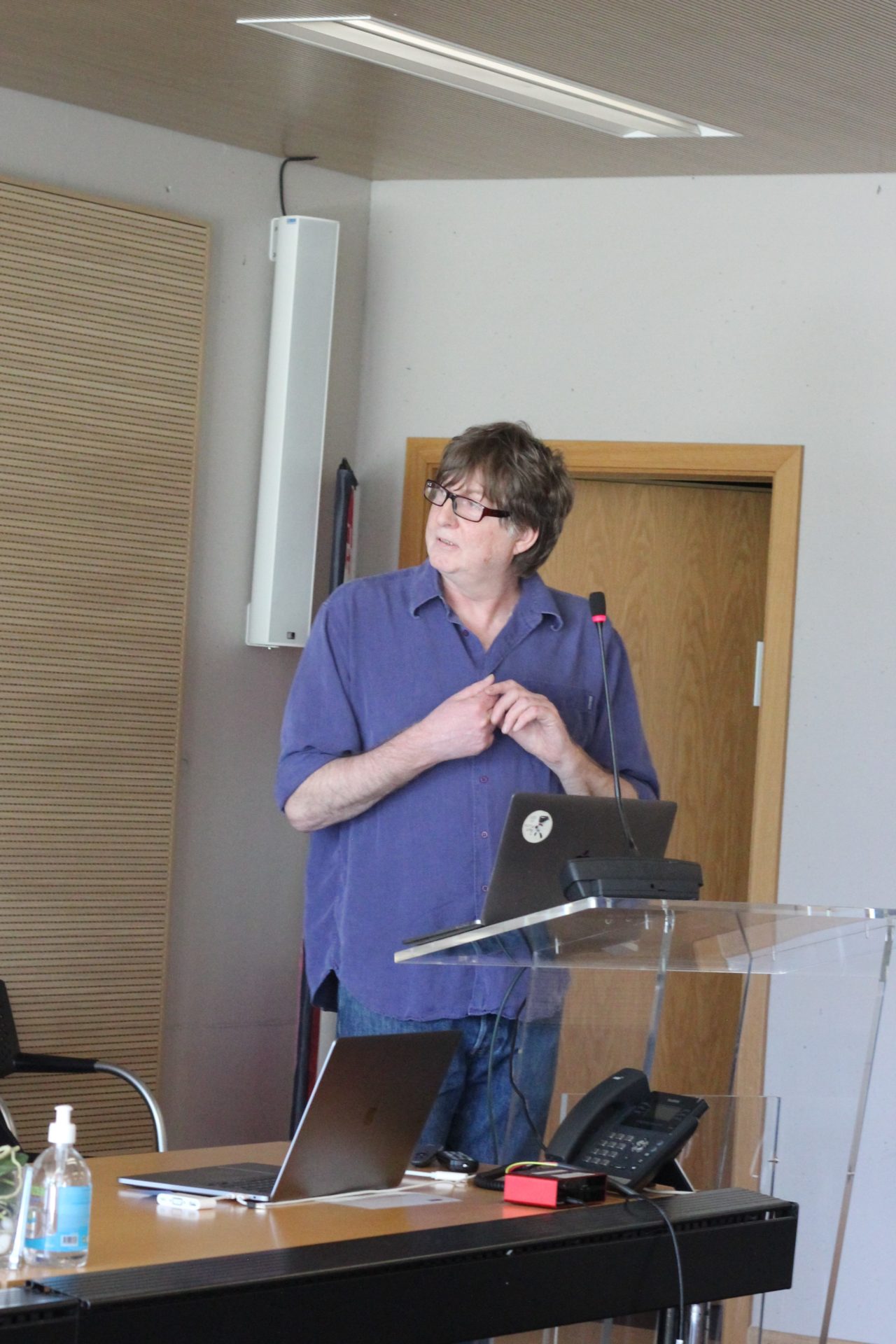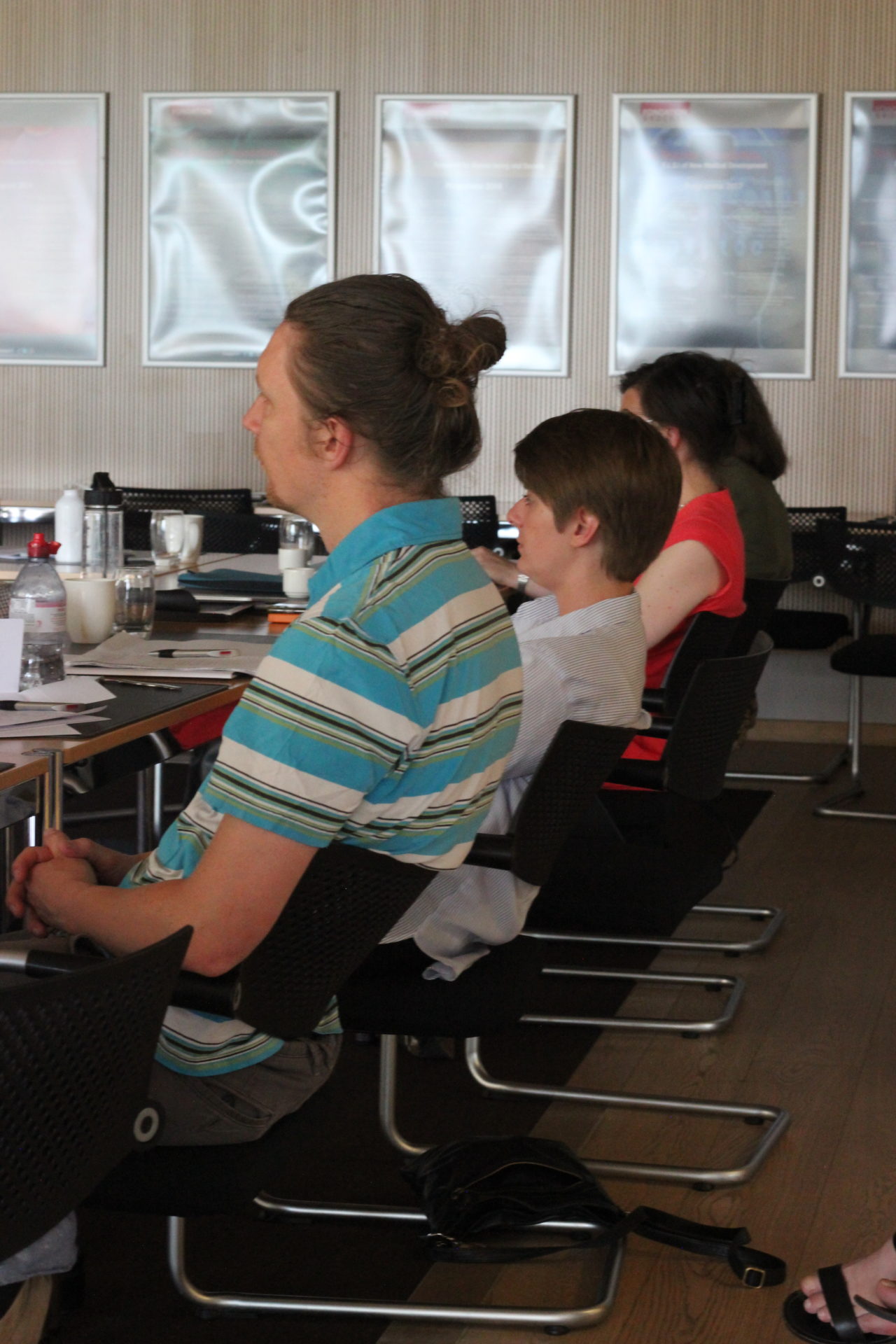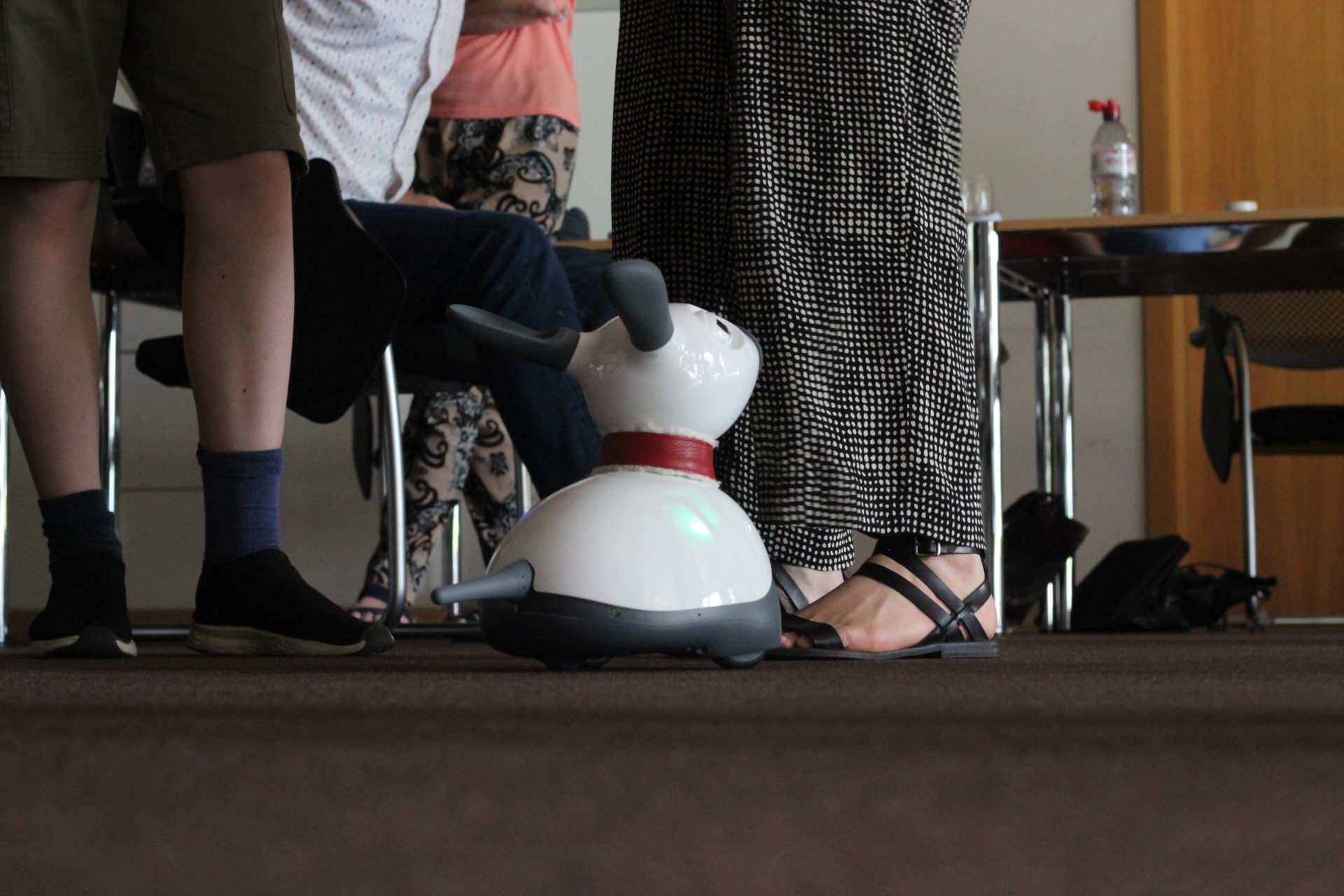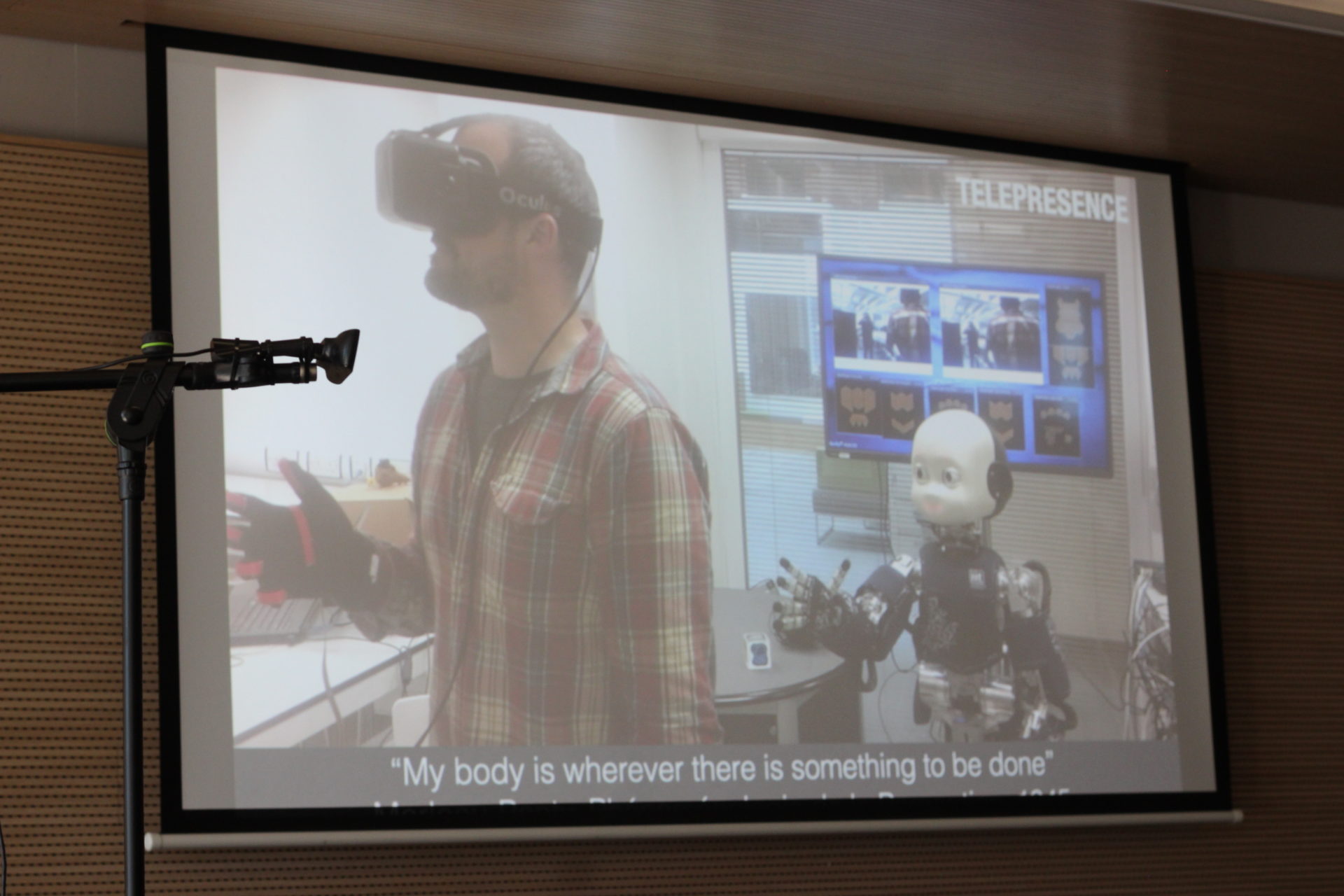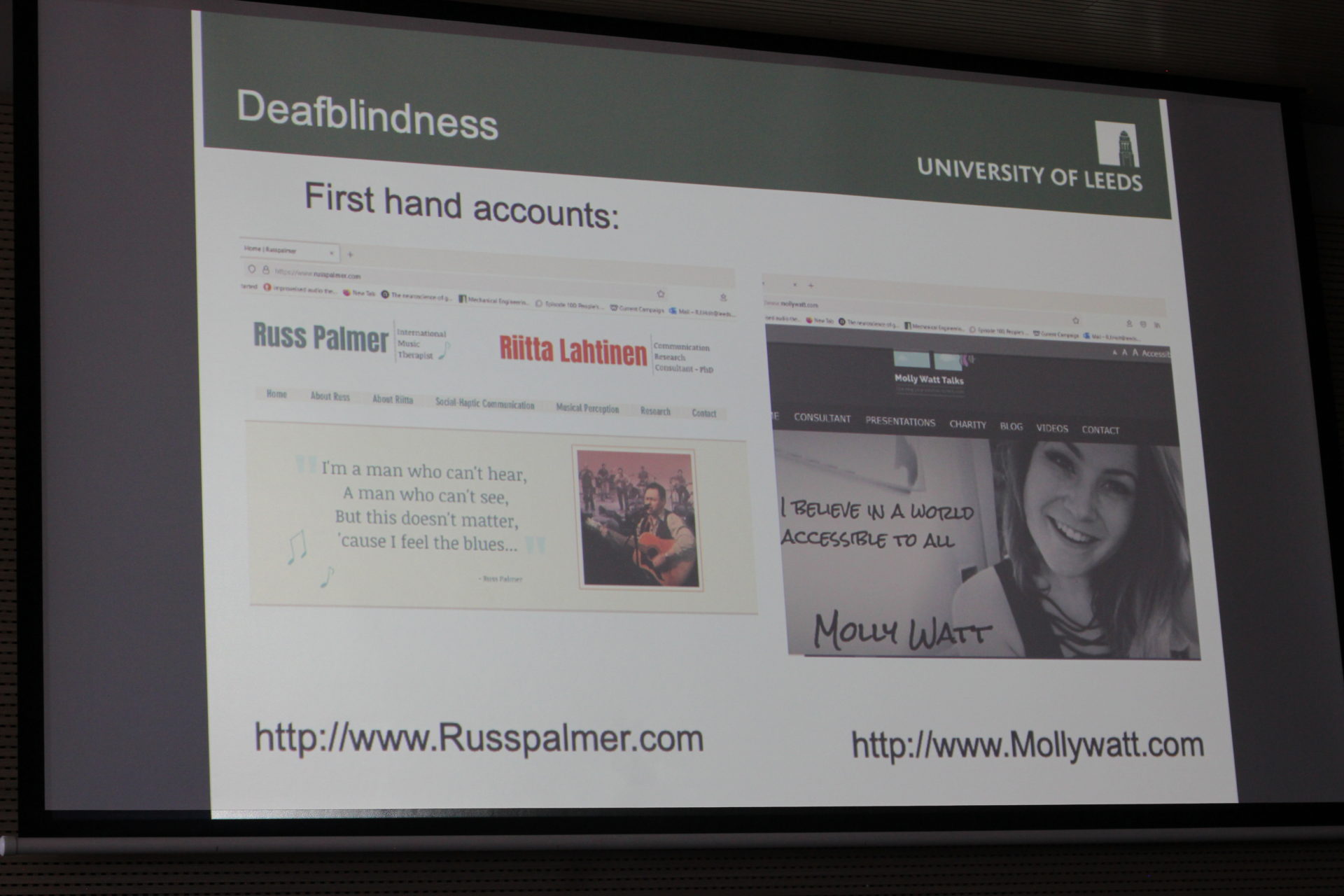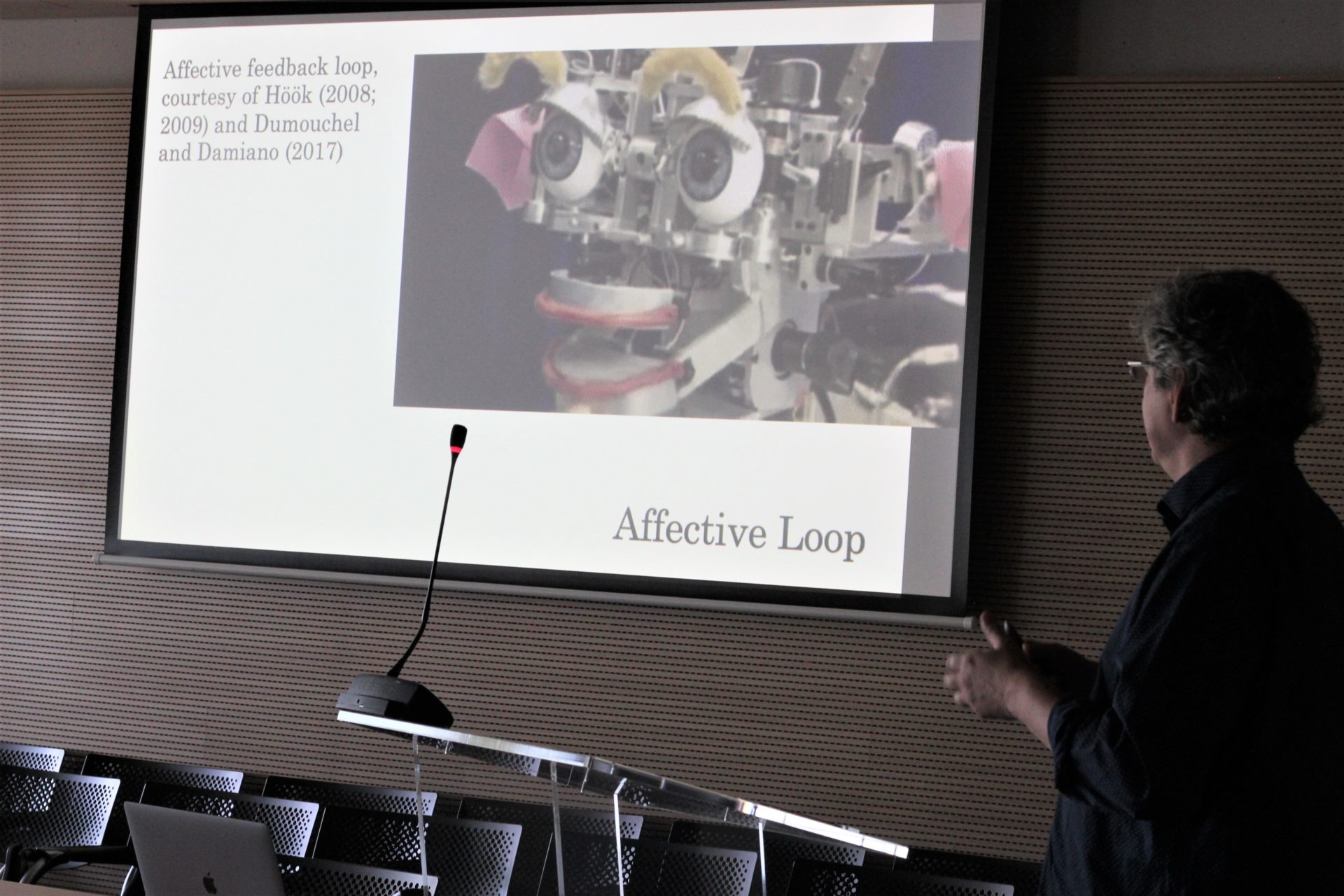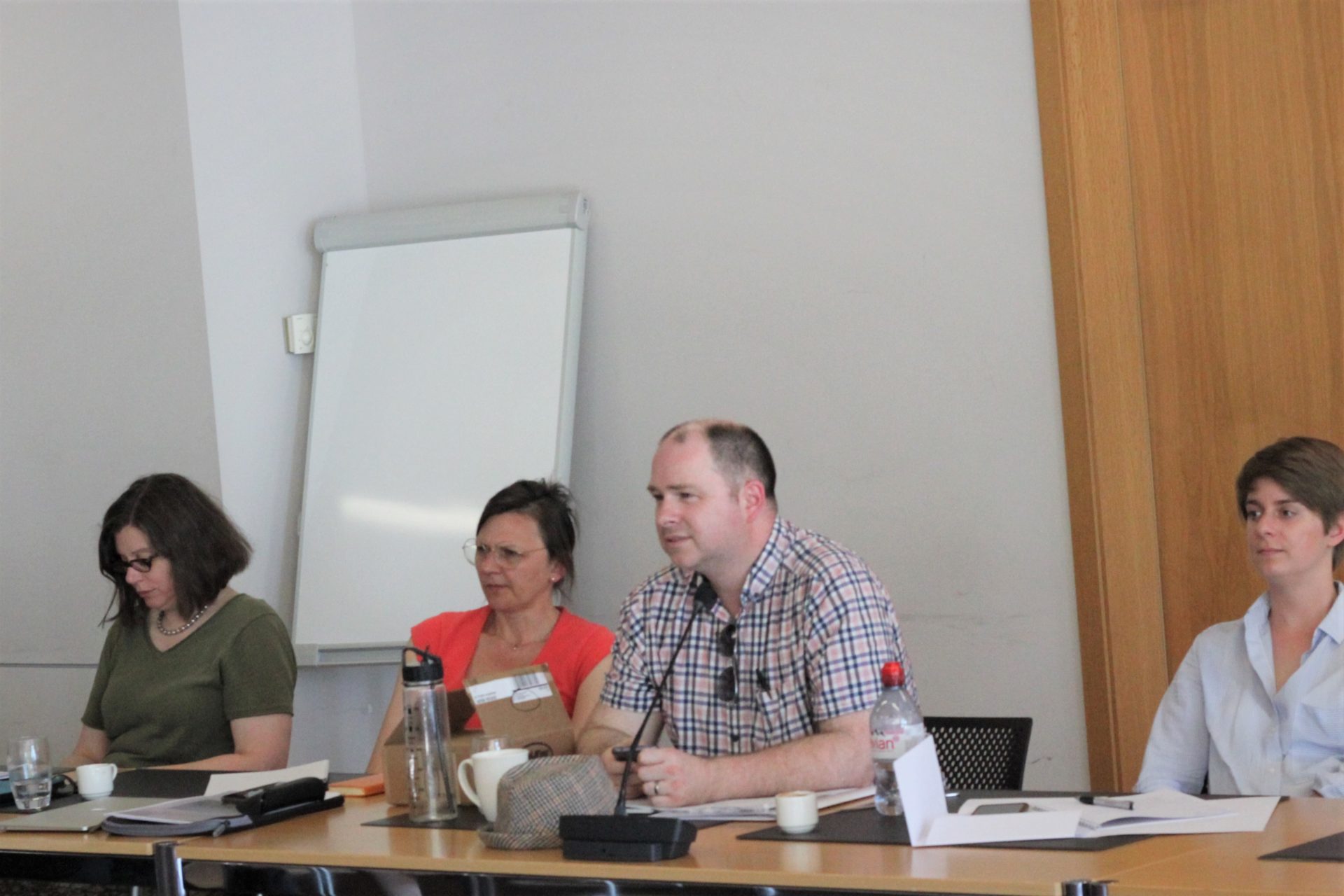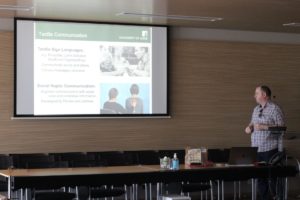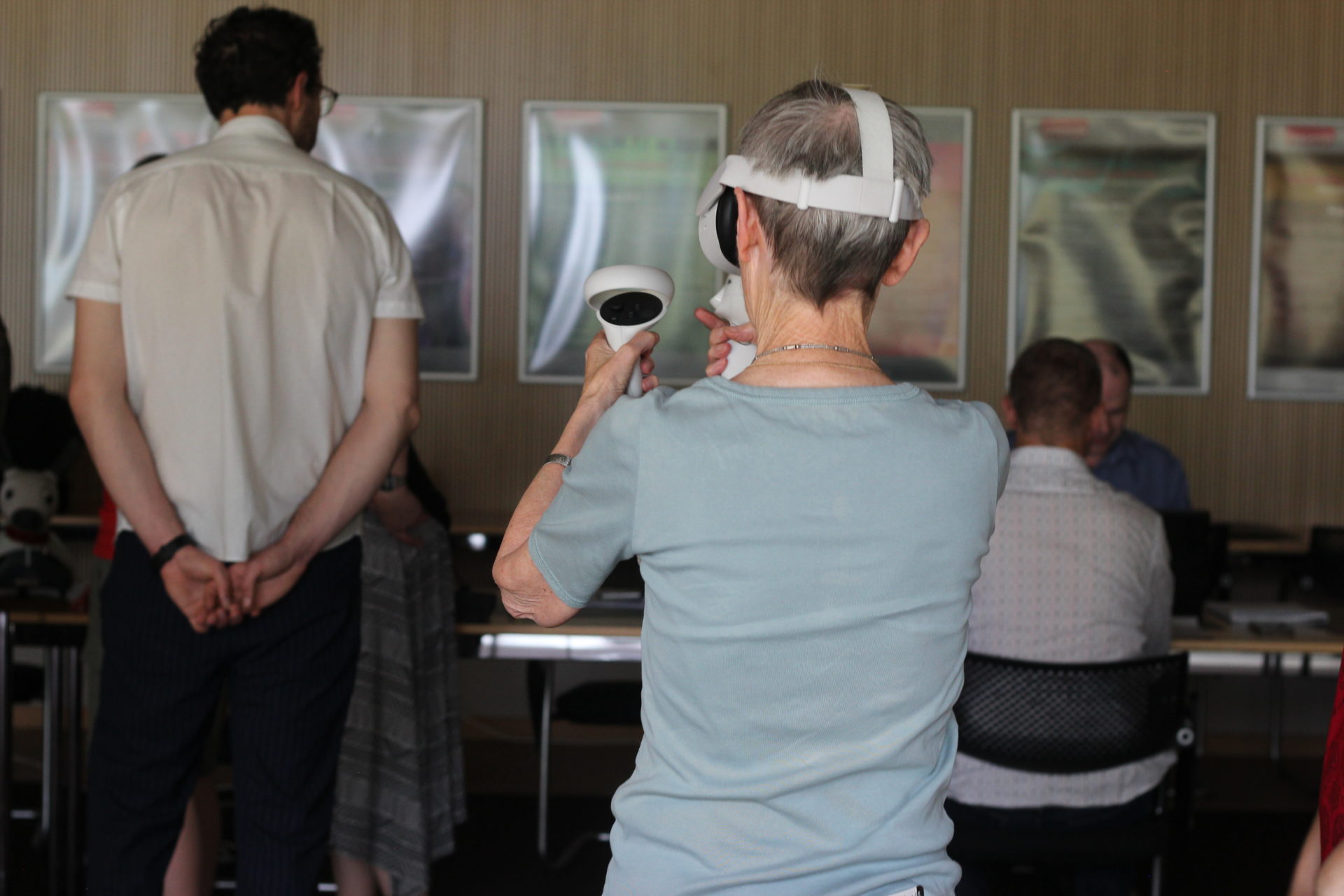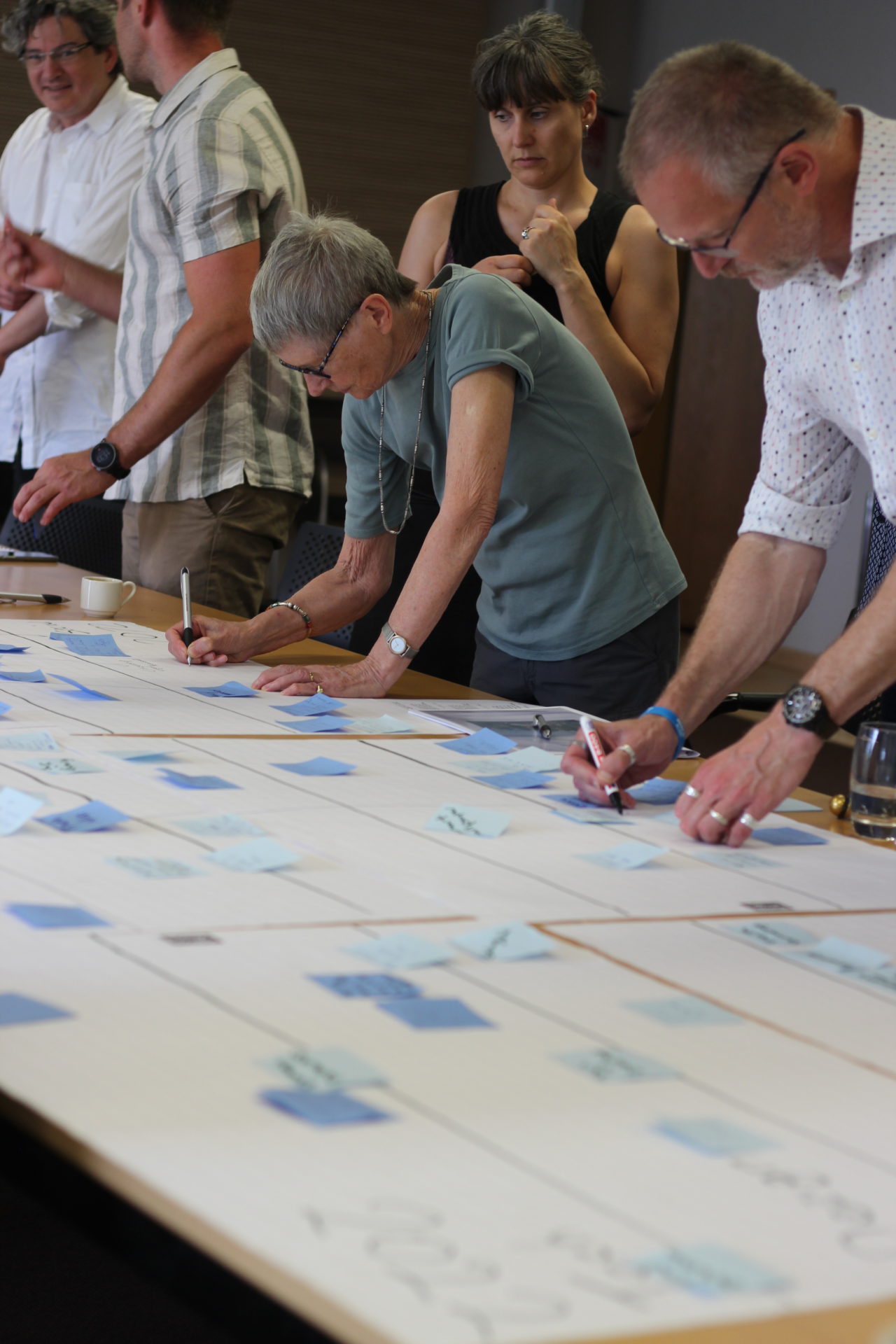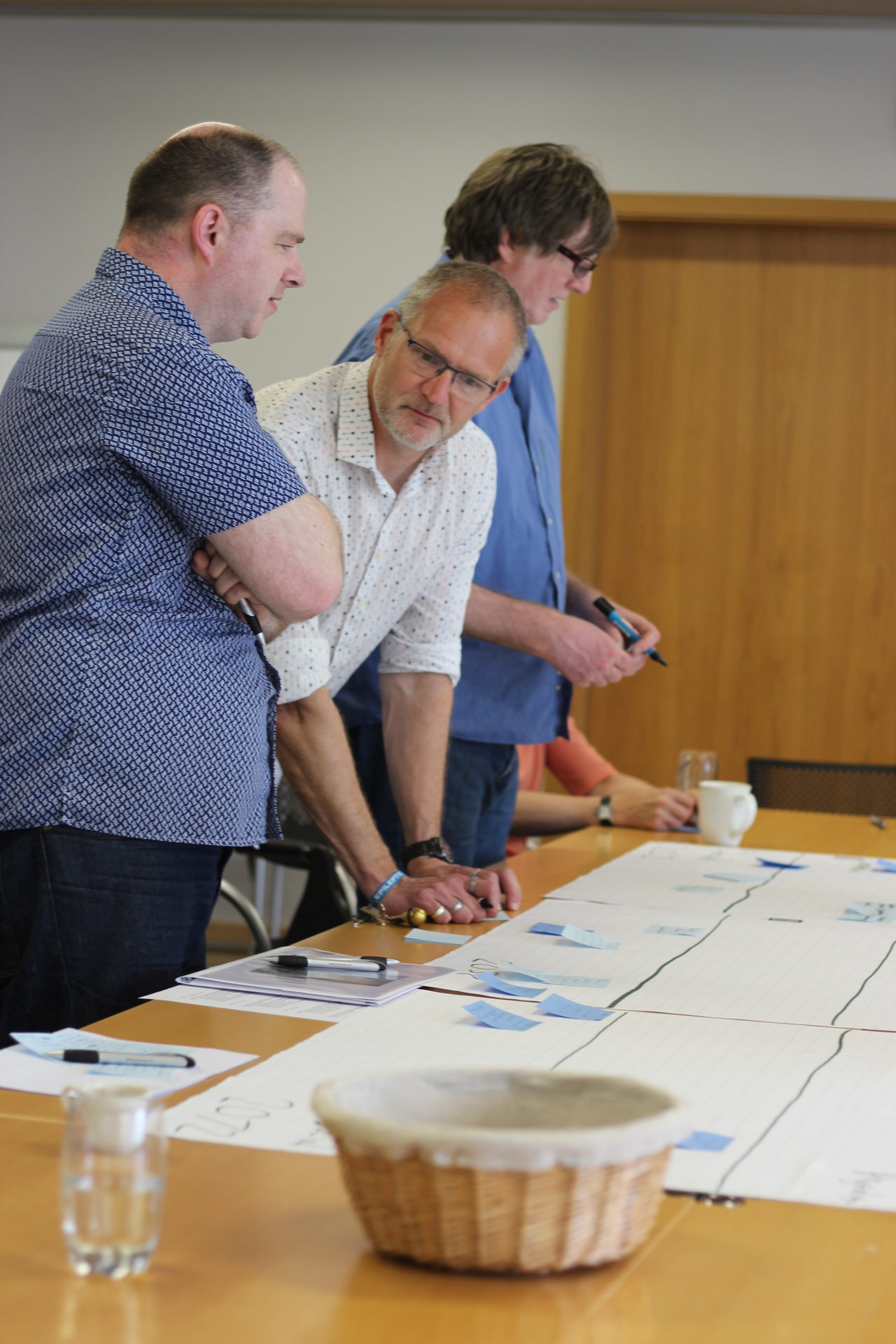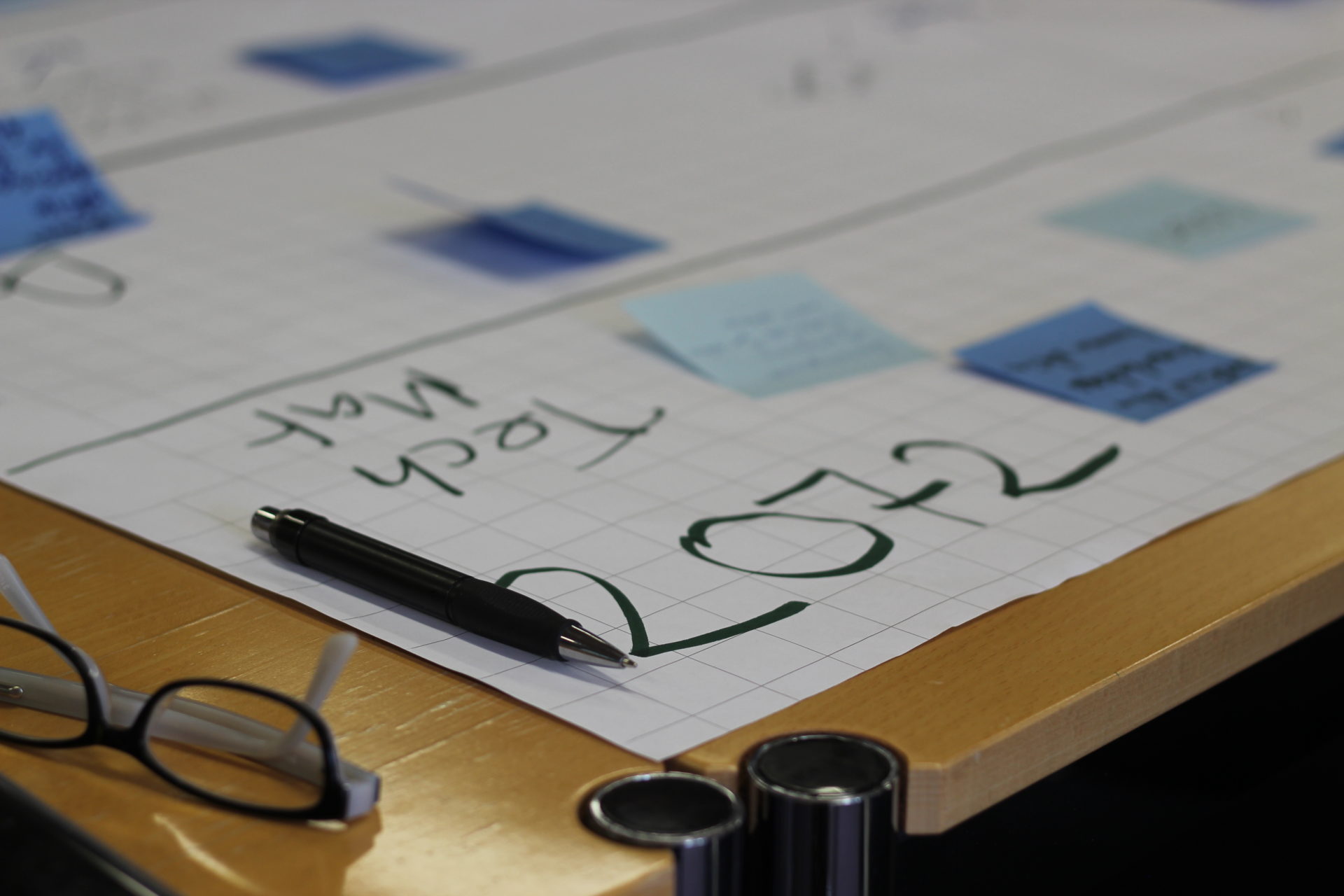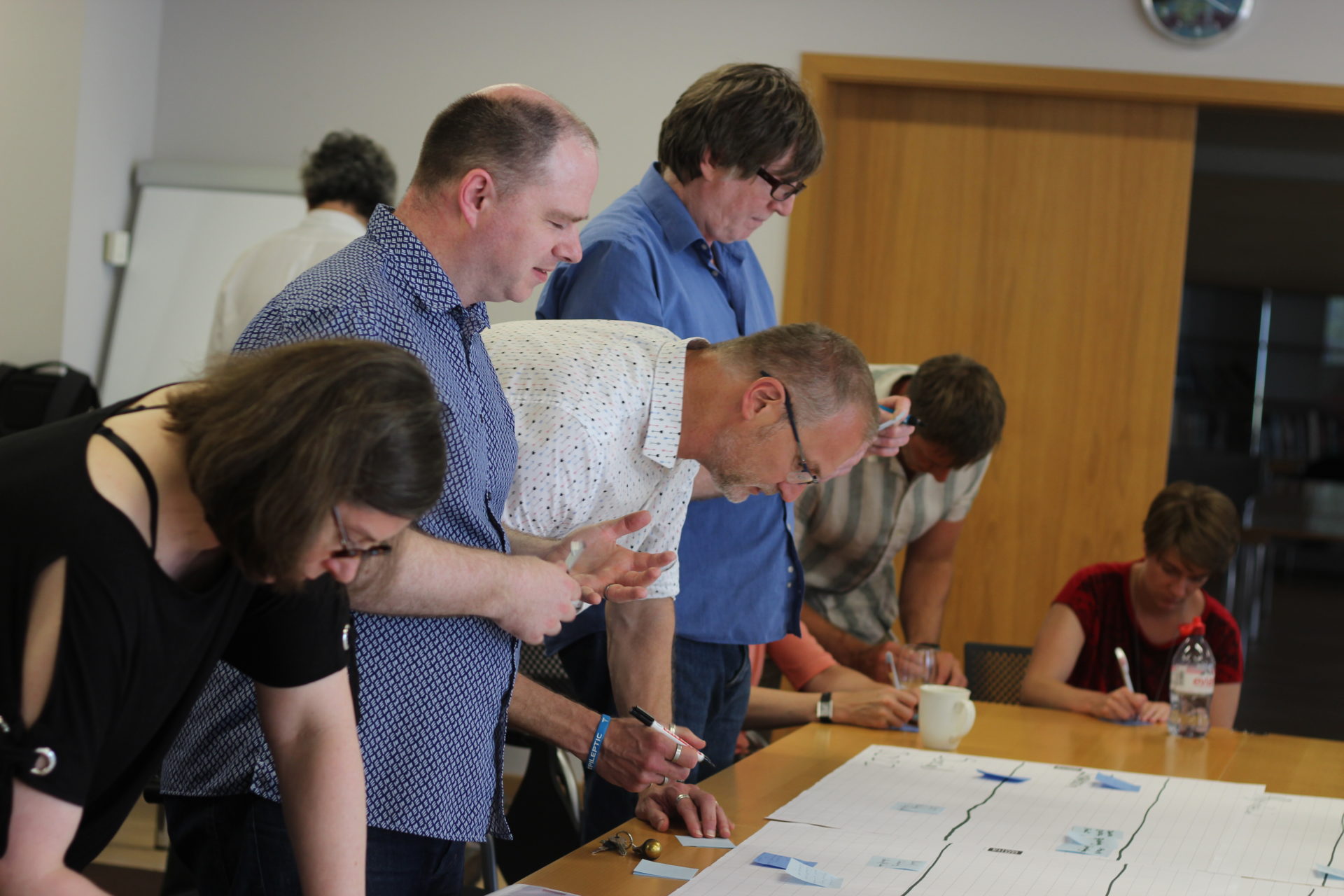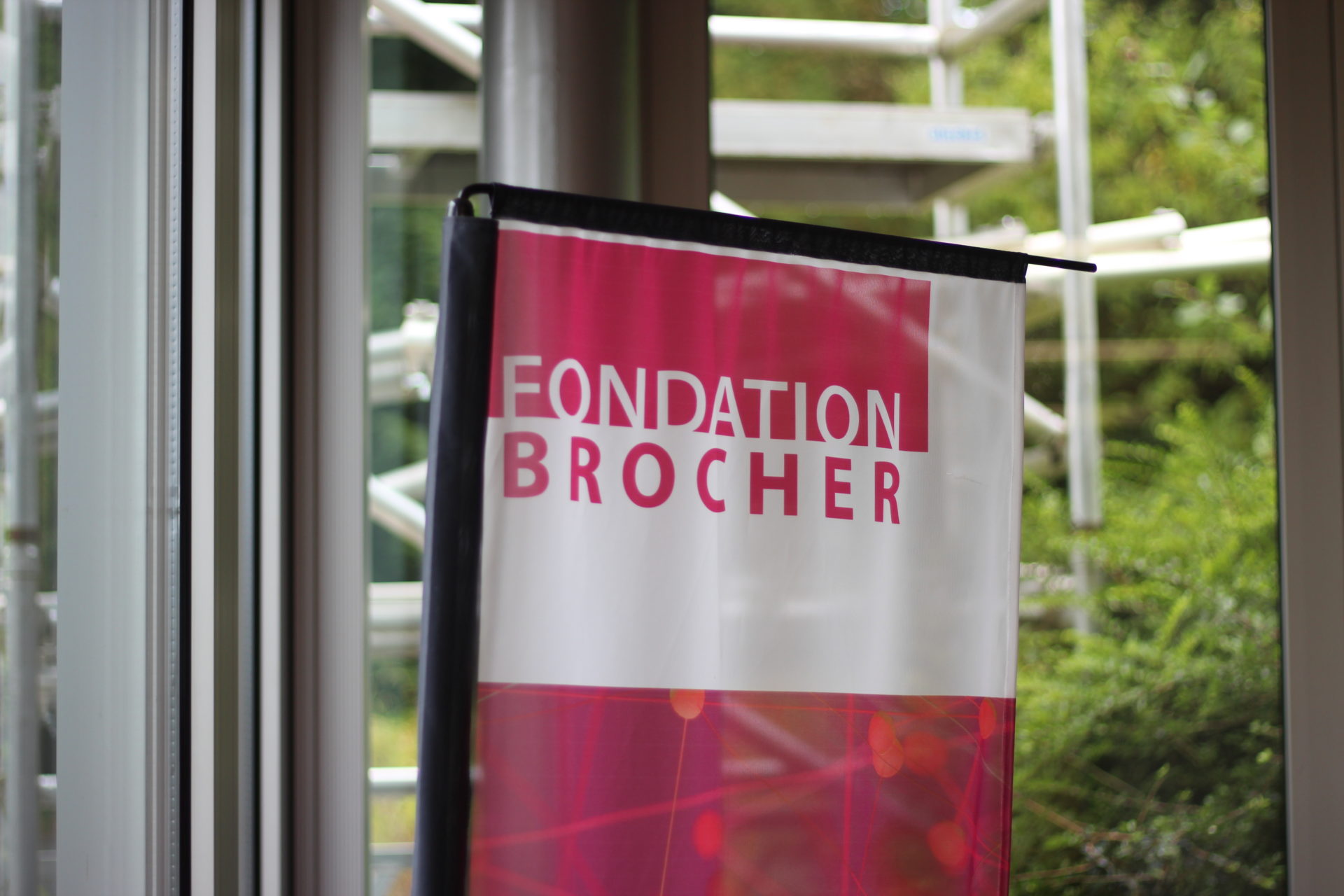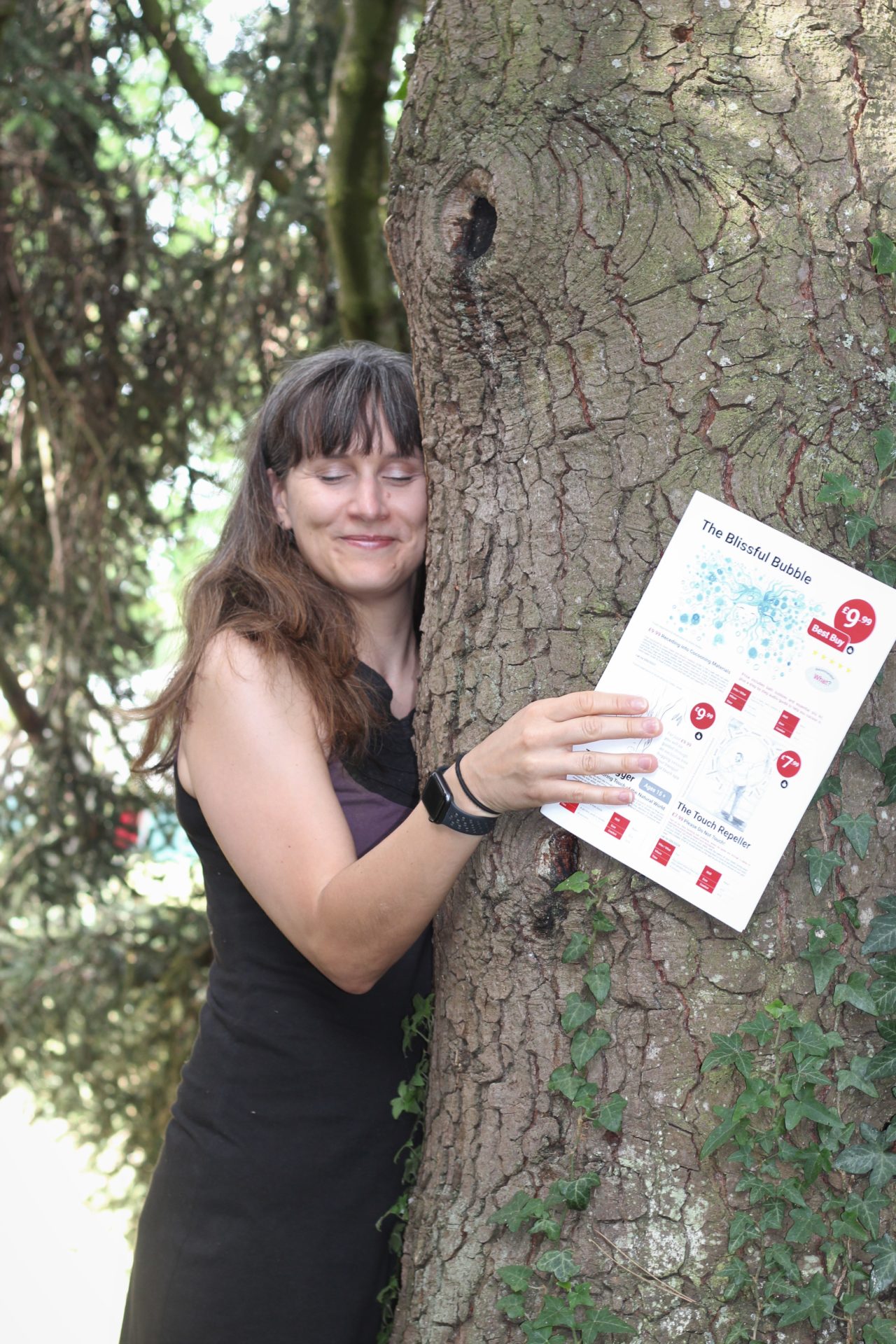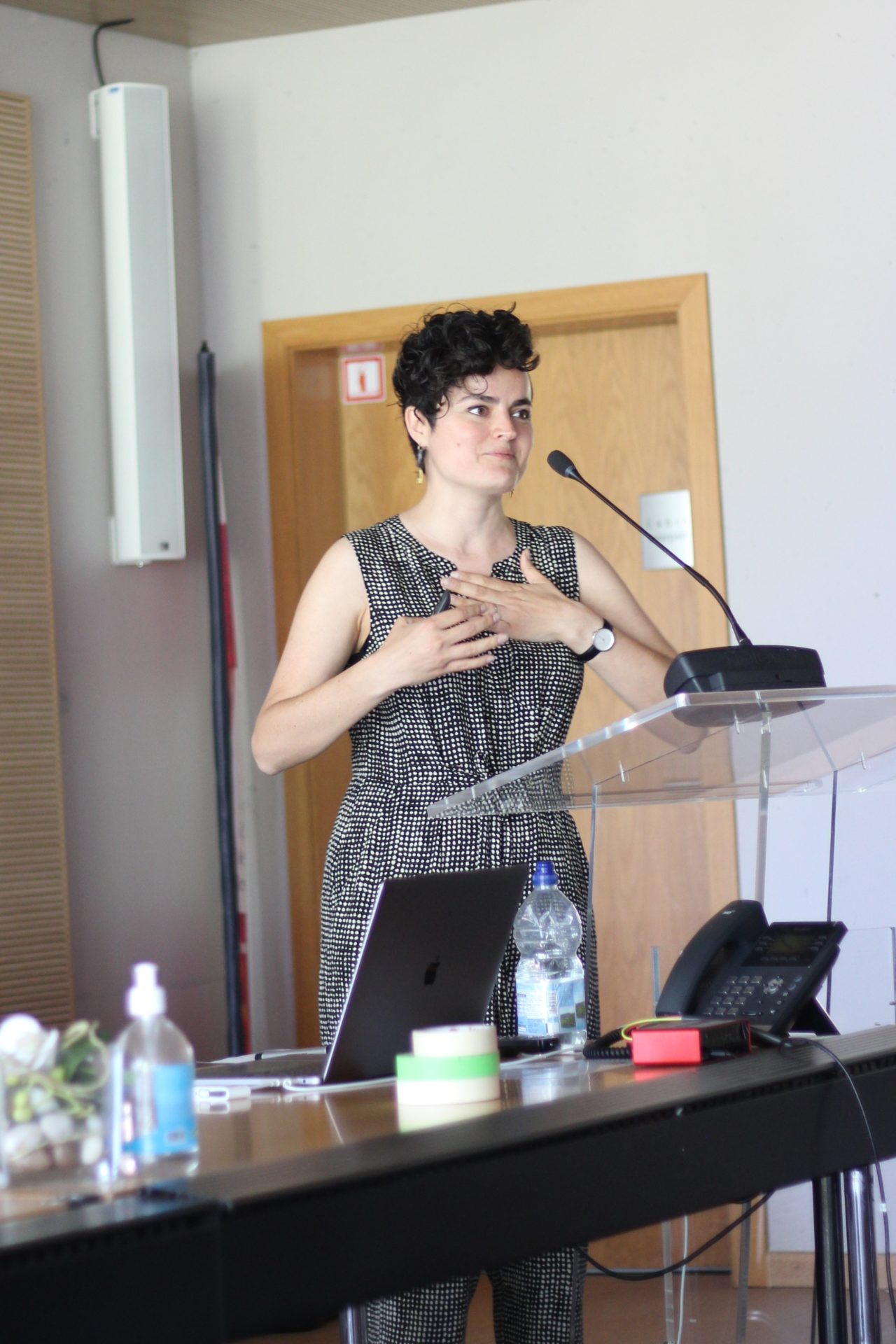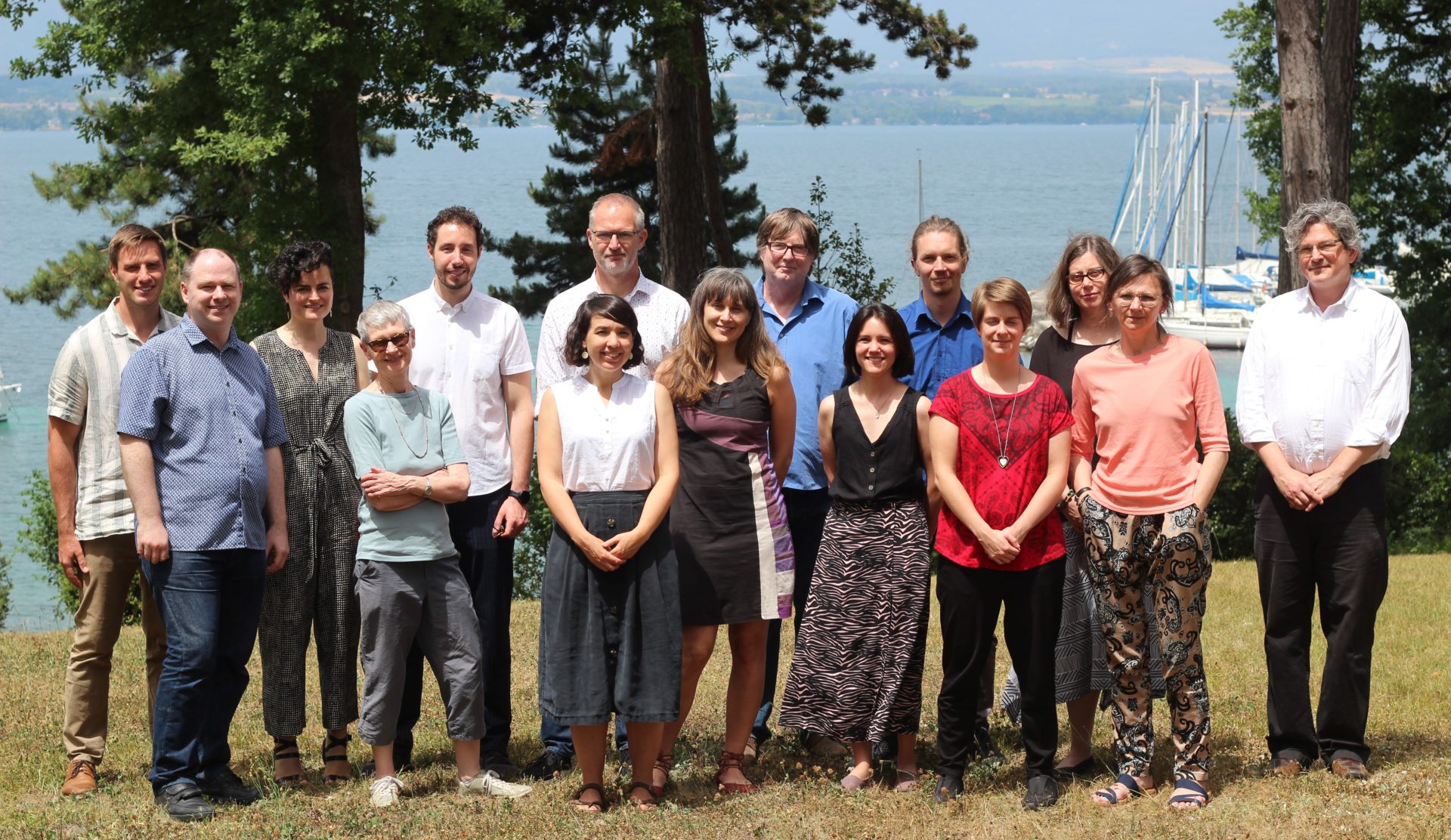Kelly Armstrong and Christina Stimson
On 20 – 22 June 2022, a dozen scholars working on the neuroscience, phenomenology, sociology, culture and ethics of touch, as well as the design and engineering of haptic technologies, convened at the beautiful 3-acre Brocher Foundation estate on the shores of Lake Geneva for a workshop on affective technotouch.
India Morrison (Linköping University) kicked off the first session with an insightful introduction to the biomechanics and social foundations of affective touch. Asta Cekaite (Linköping University) then shared findings from an investigation into the choreography of affective touch in everyday situations.
The attendees then observed the state of the art of touch technology, presented by Prof Tony Prescott (University of Sheffield), Ray Holt (University of Leeds), Mark Paterson (University of Pittsburgh), Benjamin Ward-Cherrier (University of Bristol) and Zaki Hussein (Touchlab). These presentations explored varied concepts and innovations: how robots and biohybrids give and receive affective touch as social agents, the challenges in delivering social haptics remotely, tactility and motor mimicry in socially assistive robots, 3D-printed morphologies for soft optical tactile sensors, and a demonstration of a teleoperated robotic hand capable of picking up and holding objects with context-appropriate grip.
The second day began with a paper on maternal technologies by the organisers, Luna Dolezal (University of Exeter) and Amelia DeFalco (University of Leeds). Luna presented the scientific advancements being made in the development of technologies, often referred to as artificial wombs, or ‘Biobags,’ designed to successfully extend gestation outside of the womb. The aim of these ectogenetic devices is to increase the chance of survival and lower the possibility of disability in later life for extremely premature babies, who have high death and disability rates. Amelia then shared examples of contemporary science fiction texts and TV series where caregiving companion robots, frequently referred to or otherwise treated as “Mother,” raise human children. While research has shown that being raised in the absence of human touch can have a detrimental effect on child development, this is often not the case in fictional stories, where children raised by robots often appear to have same habits and behaviours as those not denied human touch.
Things got up close and personal when Lili Golmohammadi (University College London) presented her paper on the commodification of touch and digital touch, which took the form of an Argos-style catalogue of tactile experiences. Awkward laughter and accelerated social bonding abounded in solicited (but entirely optional!) embracing, from tree hugging, hand holding and collaborative stretching, to replacing the constant companion that is the smartphone with another person’s hand.
Margrit Shildrick’s paper advocated a radical envisioning of assisted living in the context of robotics, citing the LiveNature interactive system, which takes ‘a novel combined approach involving an ambient display unit and an interactive robotic sheep, to offer long-term access and to engage people with dementia in long-term care facilities in rewarding experiences’. Drawing on posthumanist conceptions of ethics and embodiment, she proffered an approach to conceiving of vulnerability as not just exposure to risk, but also interdependency and relationality. She focused on how robots can and do provide care to humans, rather than worrying about whether robots should “care”. Invoking Deleuzian assemblages of materiality, Margrit eschewed humanist ideas of a singular, autonomous self, eroded by dementia. Instead, she extolled the virtues of embracing ambiguity and a continuous process of becoming in a queer ecology of life that extends beyond “the human.”
The final session of the day saw Ned Barker leading an ethnography-inspired workshop. Attendees were invited to consider the future of robotics and co-design a speculative chronology of its pertaining technological, social, political, and legislative developments to get an idea of what that future might look like. Putting pen to paper and adorning a drawn timeline with sticky notes lent an appropriately tactile quality to proceedings, whilst moving around the table to place ideas stimulated the discussion, especially with so many duplicates and contingent factors being thrown into the mix.
On the final morning, the group gathered for a roundtable chaired by itDf Principal Investigator, Stuart Murray (University of Leeds), where participants explored a variety of topics, including posthumanist ethics, interdisciplinary working, and co-creation.
The full programme for the Affective Technotouch workshop is hosted on the itDf website and can be found by following this link.
Tech Showcase
During the workshop, participants were able to get hands-on with a variety of ‘touch’ technologies:
· Lili Golmohammadi (University College London) – Hey Bracelet
· Christina Stimson (University of Sheffield) – VR telepresence experience
· Benjamin Ward-Cherrier (University of Bristol) – TacTip tactile sensor
· Zaki Hussein (TouchLab) – Tactile sensing e-skin
· Raymond Holt (University of Leeds) – Haptic interface prototype
· Tony Prescott (Consequential Robots) – MiRo robot
Unlocking Touch
Whilst on location, the workshop participants were encouraged to experience a participatory binaural sound performance titled Unlocking Touch. This experience was an output of the InTouch project and is designed for listeners to encounter on their own, as they follow the story of the central character’s experience of the UK’s COVID-19 lockdown and of touch, which explores the theme of loneliness during the pandemic.
The full Affective Technotouch programme is available via this link.
